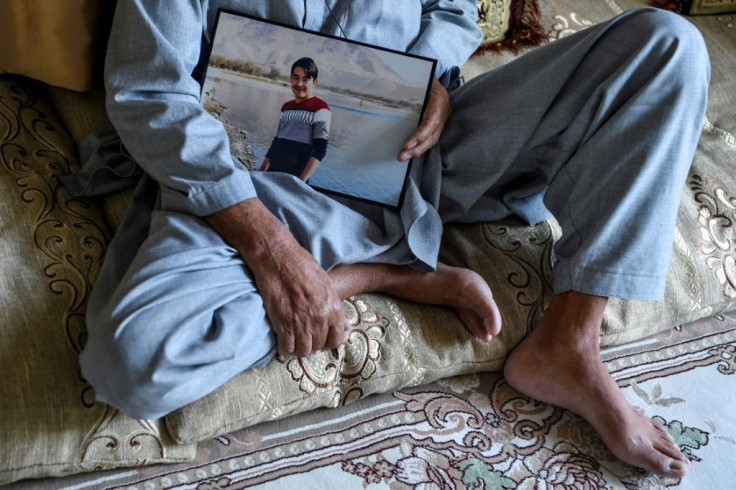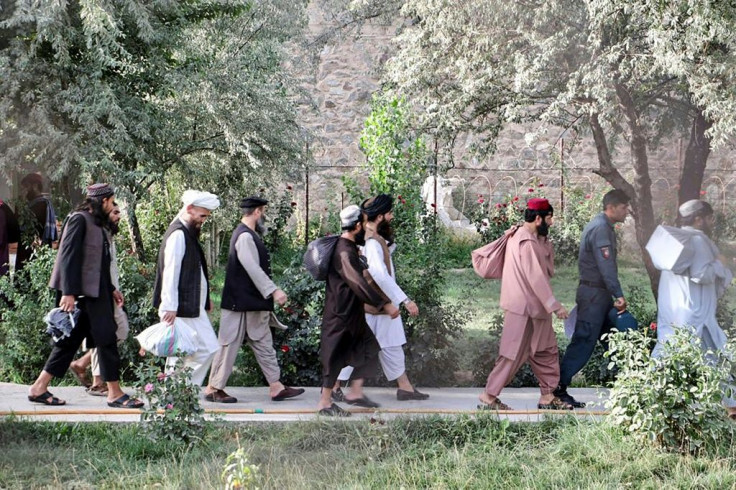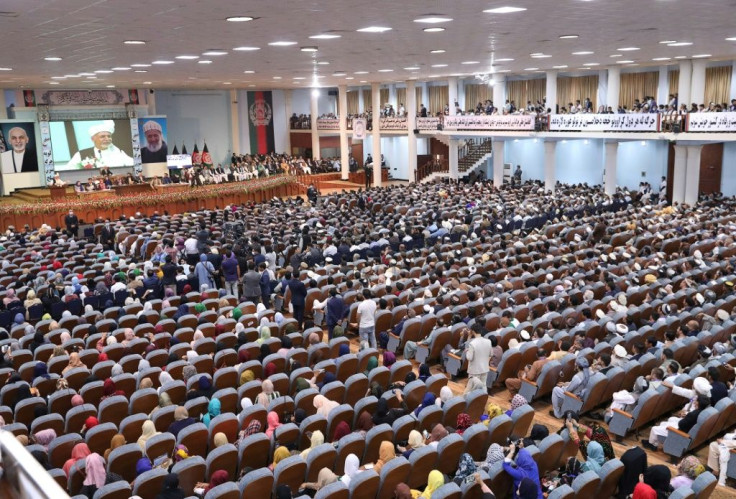Taliban Prisoner Release Re-opens Wounds For Victims' Families
The decision to release hundreds of the Taliban's most dangerous prisoners has stirred painful memories for the loved ones of those killed in Afghanistan's war, with many questioning whether the move will help bring peace.
About 400 inmates are expected to be set free in the coming days, after which the Taliban have said they will sit for direct peace talks with the Afghan government.
President Ashraf Ghani has said the US-backed release is a necessary development highlighting the "cost" of making peace.
But for some victims' families, it is a step too far.

It "felt like being stabbed in the heart with a knife", said Juma Khan, 77, as he recalled watching Afghan leaders gather to debate and eventually approve the release.
Khan's son, Aziz Ahmad Naween, an IT specialist, was killed in a massive truck bombing near the German embassy in May 2017 while heading to work. He was 24.
"We all want peace, but they never asked for our opinion, the victims," Khan said.
"That was the worst day of my life. I fell unconscious on seeing the body of my young son in a coffin," he told AFP at his home in Kabul.

"I don't believe that the decision to release them will lead to any peace in this country any time soon."
The Afghan government has already freed about 5,000 Taliban prisoners under a swap fleshed out in a deal between the US and the insurgents in February.
While the former inmates have pledged not to pick up arms, Ghani on Thursday acknowledged some of the 400 currently being released likely "pose a danger both to us and to (America) and to the world".

In an op-ed in the Washington Post on Friday he also said that the families of those killed by the militants had paid a heavy price.
"The cost of releasing these 5,000 prisoners meant, among other things, denying justice and healing for the families of those they murdered," Ghani wrote.
"We have paid with our lives -- tens of thousands of Afghan lives, including even our tiniest, most precious and innocent lives."

The truck bombing killed more than 150 people and wounded hundreds more in Kabul's highly fortified diplomatic quarter in the deadliest attack since 2001.
No group claimed the attack, but the government blamed the Taliban-allied Haqqani Network.
An official list of the 400 prisoners seen by AFP includes a militant involved in that attack, and the release has triggered international condemnation.
Australian Prime Minister Scott Morrisson said earlier this week he had lobbied for a former Afghan army soldier, who went rogue and killed three Australian colleagues, to stay in jail.
The family of French woman Bettina Goislard, a United Nations refugee worker who was shot dead by Taliban militants in 2003, has opposed the release of her killers.
"Such a decision to free (them) made on the basis of horse-trading would be, to us, her family, inconceivable," Bettina's family told AFP.
The decision also shocked Shahnaaz Ahmadi, 42, whose 45-year-old husband Faiz Ali Ahmadi was killed in the same truck bombing.
"It was unbelievable... and hard to watch what was happening," said Shahnaaz, who watched thousands of Afghan elders and stakeholders debate the release at last week's "loya jirga" meeting.
"How could they do that? We all cried that day," the mother of seven told AFP.
Shahnaaz's husband was a security guard at a telecommunications company. Her teenage daughter, Gulbahar, still mourns his death.
"We have endured so much hardship since losing my father, both financially and emotionally," Gulbahar said.
"They should have been executed long back. I can never forgive them for taking my father from me."
"If I, as the brother of a victim of this war, objects in releasing the killer of my brother, then this war is going to continue forever," Sayed, a resident of Kandahar said.
"Now is the time for forgiveness and tolerance."
© Copyright AFP 2024. All rights reserved.











